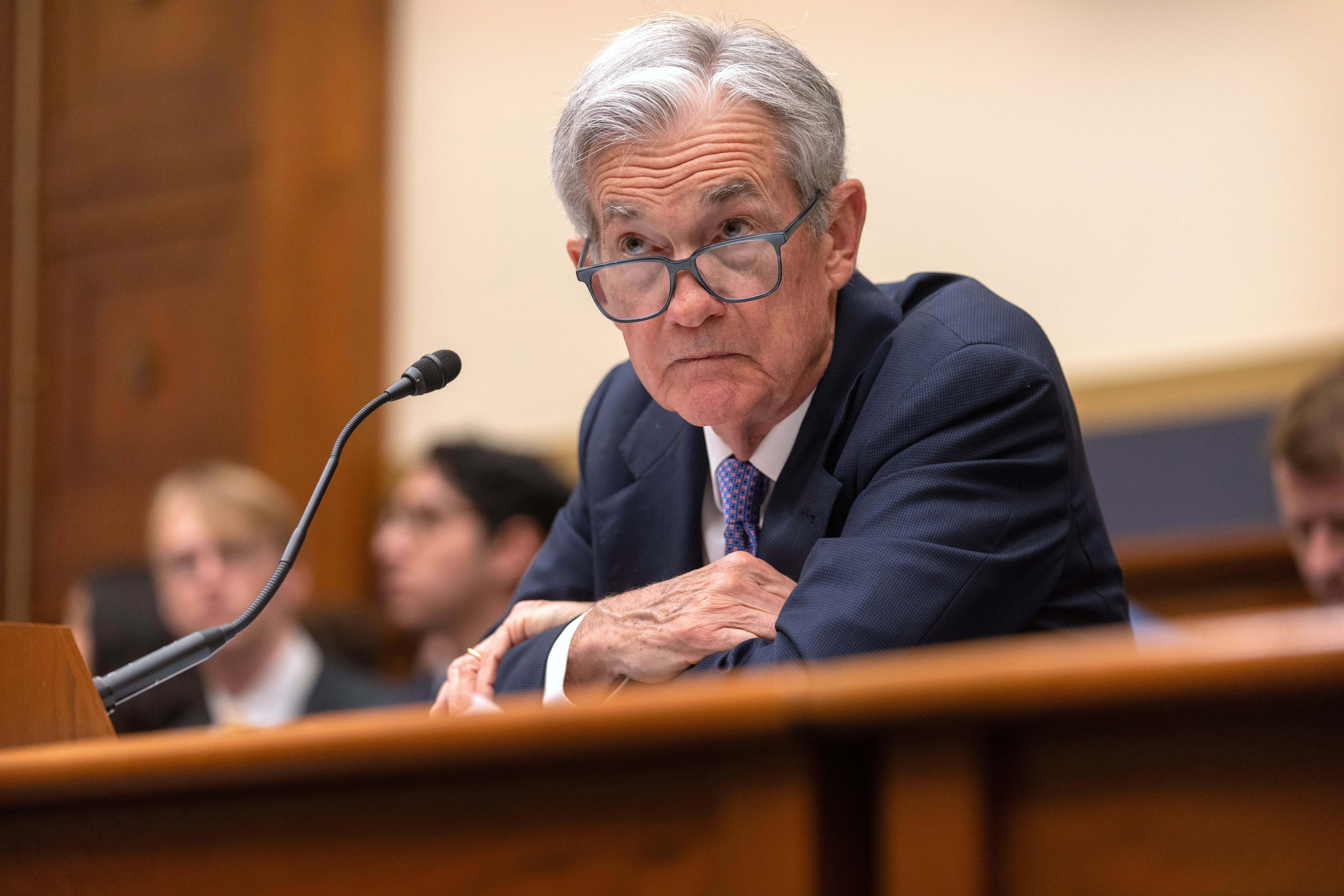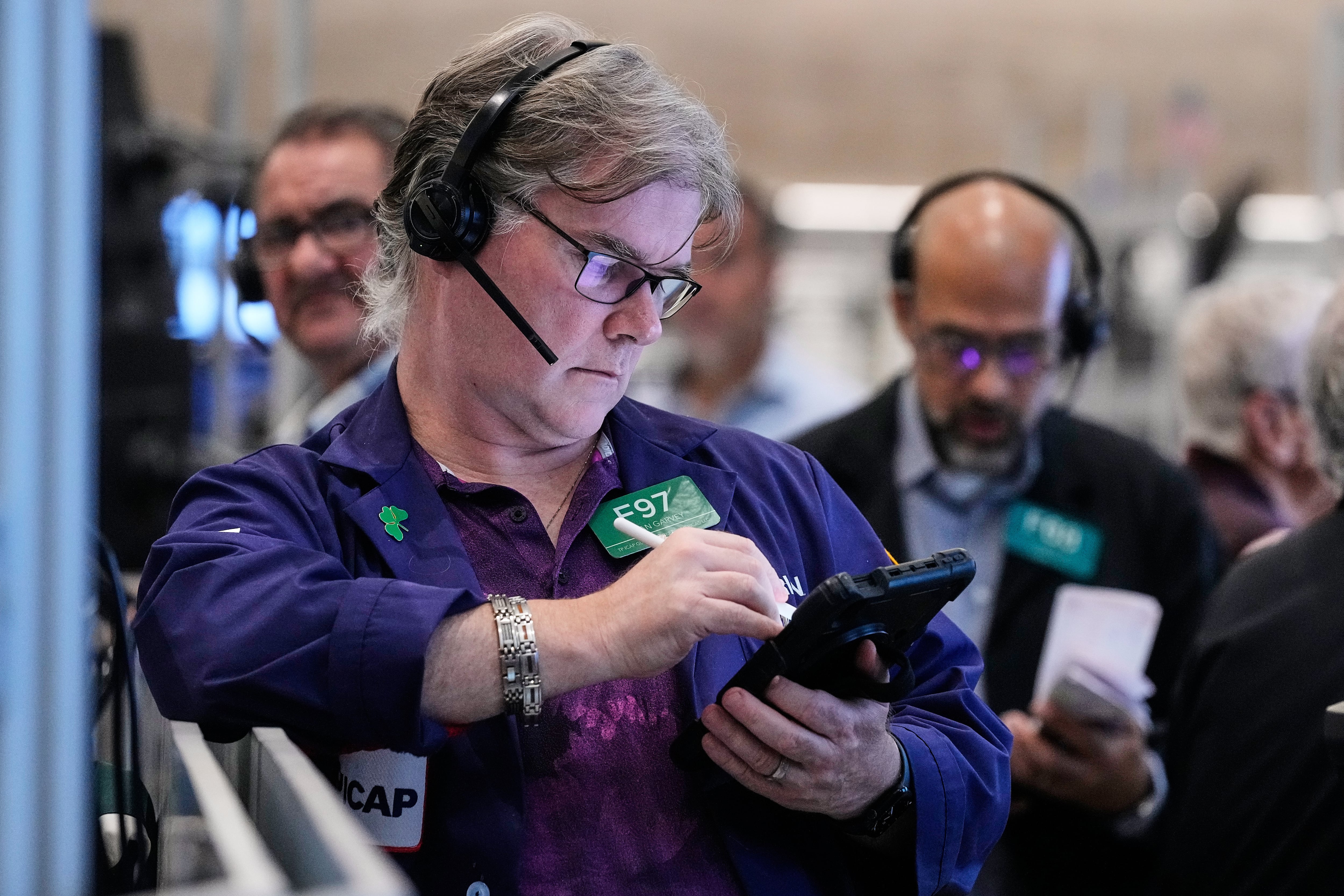WASHINGTON (AP) — A top Federal Reserve official said late Thursday that the central bank should cut its key interest rate later this month, carving out a different view than that of Chair Jerome Powell, who has been harshly criticized by the White House for delaying rate cuts.
Christopher Waller, a member of the Fed’s governing board, said in a speech in New York City that the economy is showing signs of weakening, with consumer spending slowing and job gains cooling. The Fed should reduce borrowing costs to shore up spending and growth before the job market weakens further, Waller said.
“The economy is still growing, but its momentum has slowed significantly,” he said, adding that the slowdown threatens the Fed’s goal of maximum employment.
At the same time, President Donald Trump’s sweeping tariffs are likely to only lift inflation temporarily and aren’t a reason to postpone rate cuts, Waller said.
“Tariffs have boosted, and will continue to boost, inflation a bit above the (Fed’s) 2% objective this year,” Waller said, but policymakers should “look through tariff effects and focus on underlying inflation,” which he said is nearing the 2% goal.
Waller has been mentioned as a potential replacement for Powell when the current chair’s term expires in May 2026, or perhaps earlier if Trump takes the unprecedented step of firing Powell. Trump has threatened to fire Powell this year but on Wednesday said it was “highly unlikely” he would take such a step.
For his part, Powell has said the Fed wants to see the impact of the duties on prices and the economy before making any moves.
Waller, a Trump appointee, has previously said that he would support a rate cut in July. Michelle Bowman, also a Trump appointee, has also spoken in favor of a cut.
Minutes to the Fed’s June 17-18 meeting said that only “a couple” of the 19 members of the central bank’s interest-rate setting committee supported a cut in July.
Other participants — the minutes didn’t say how many — said that the Fed should keep rates unchanged this year, since inflation remains above 2%. Consumer prices rose 2.7% in June from a year ago, the fastest pace in four months.
Other potential replacements for Powell have also publicly expressed support for cutting rates soon, including Kevin Warsh, a former member of the Fed’s board who stepped down in 2011. Warsh, currently a fellow at the Hoover Institution, said on Fox News’ “Sunday Morning Futures” earlier this week that he supported rate cuts.
“The president’s right to be frustrated with Jay Powell and the Federal Reserve,” Warsh said.
The Federal Reserve cut its key interest rate Wednesday for a second time this year as it seeks to shore up economic growth and hiring even as inflation stays elevated. The move comes amid a fraught time for the central bank, with hiring sluggish and yet inflation stuck above the Fed’s 2% target. Compounding its challenges, the central bank is navigating without much of the economic data it typically relies on from the government. The Fed has signaled it may reduce its key rate again in December but the data drought raises the uncertainty around its next moves. Fed Chair Jerome Powell told reporters that there were “strongly differing views” at the central bank's policy meeting about to proceed going forward.
The Federal Reserve will almost certainly cut its key interest rate on Wednesday and could signal it expects another cut in December as the central bank seeks to bolster hiring. A cut Wednesday would be the second this year and could benefit consumers by bringing down borrowing costs for mortgages and auto loans. Since Fed chair Jerome Powell strongly signaled in late August that rate cuts were likely this year, the average 30-year mortgage rate has fallen to about 6.2% from 6.6%. Still, the Fed is navigating an unusual period for the U.S. economy and its future moves are harder to anticipate than is typically the case.
Stocks are rallying toward more records ahead of a week packed with potentially market-moving events. The S&P 500 rose 1% Monday. The Dow Jones Industrial Average added 224 points, and the Nasdaq composite jumped 1.7%. Stocks also climbed in Asia ahead of a meeting on Thursday between the heads of the United States and China. The hope is that the talks could clear rising tensions between the world’s two largest economies. This upcoming week will feature profit reports from some of Wall Street's most influential companies and a meeting by the Federal Reserve on interest rates. Gold fell back toward $4,000 per ounce.
U.S. and Chinese officials say a trade deal between the world’s two largest economies is drawing closer. The sides have reached an initial consensus for President Donald Trump and Chinese leader Xi Jinping to aim to finalize during their high-stakes meeting Thursday in South Korea. Any agreement would be a relief to international markets. Trump's treasury secretary says discussions with China yielded preliminary agreements to stop the precursor chemicals for fentanyl from coming into the United States. Scott Bessent also says Beijing would make “substantial” purchases of soybean and other agricultural products while putting off export controls on rare earth elements needed for advanced technologies.
Some seniors say the Social Security Administration's cost-of-living adjustment won’t help much in their ability to pay for their daily expenses. The agency announced Friday the annual cost-of-living adjustment will go up by 2.8% in 2026, translating to an average increase of more than $56 for retirees every month. Eighty-year-old Florence, South Carolina, resident Linda Deas says it does not match the current "affordability crisis.” The benefits increase will go into effect for Social Security recipients beginning in January. Friday’s announcement was meant to be made last week but was delayed because of the federal government shutdown. Recipients got a 2.5% COLA boost in 2025 and a 3.2% increase in 2024.
Wall Street is heading for records after an update said U.S. households are feeling a bit less pain from inflation than feared. The S&P 500 climbed 1% Friday and was on track to top its all-time high set earlier this month. The Dow Jones Industrial Average jumped 529 points, and the Nasdaq composite rose 1.3%. Both are also heading toward records. The inflation data could clear the way for the Federal Reserve to keep cutting interest rates in hopes of helping the slowing job market. A strong earnings reports from Ford Motor and continued gains for AI stars also drove stocks higher.
Federal Reserve Chair Jerome Powell says that a sharp slowdown in hiring poses a growing risk to the U.S. economy.
Three researchers who probed the process of business innovation have won the Nobel memorial prize in economics for explaining how new products and inventions promote economic growth and human welfare, even as they leave older companies in the dust.
U.S. stocks are rising and recovering some of their sell-off from Friday. The S&P 500 climbed 1.6%.
President Donald Trump says “there seems to be no reason” to meet with Chinese leader Xi Jinping as part of an upcoming trip to South Korea after China restricted exports of rare earths needed for American industry. The Republican president suggested Friday he was looking at a “massive increase” of import taxes on Chinese products in response to Xi’s moves. Trump says one of the policies the U.S. is calculating is "a massive increase of Tariffs on Chinese products coming into the United States." A monthslong calm on Wall Street was shattered, with U.S. stocks falling on the news. The Chinese Embassy in Washington hasn't responded to an Associated Press request for comment.













